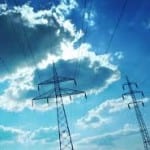A Florida woman has been evicted from her own home for opting to live off the grid. Robin Speronis, whose story was covered in OffTheGridNews as well as a number of other, more mainstream media outlets in the US, has strived to live as self-sufficiently as possible since the death of her husband. Key to her survival are her reliance on solar panels for her electricity needs and rain for her water.
 Her notice to vacate her home came about shortly after a local Florida news station featured her story. The day following the airing of the piece, which noted that her living situation was likely in contravention of building codes and therefore illegal, city code enforcement officials showed up on her doorstep to serve her orders to vacate. The official reason given for her home being ‘uninhabitable’ was its failure to comply with the International Property Maintenance Code.
Her notice to vacate her home came about shortly after a local Florida news station featured her story. The day following the airing of the piece, which noted that her living situation was likely in contravention of building codes and therefore illegal, city code enforcement officials showed up on her doorstep to serve her orders to vacate. The official reason given for her home being ‘uninhabitable’ was its failure to comply with the International Property Maintenance Code.
After this, the situation appears to have disintegrated, devolving into a bitter feud between Speronis, the city and the police. She eventually spent a month in prison on animal abuse charges which were ultimately thrown out. At least one of her neighbours speculated that these charges were trumped up–‘just another quiver of stuff they want to use against her’. The legal challenge to her code violations are as of yet still unresolved, but she continues to live in her home.
Speronis’ story has made national news in the US thanks, no doubt, to the numerous elements of zeitgeist that it features: The government’s role in health care, the idea of self-sufficiency in an age of convenience and heavy reliance on technology, and of course — solar power. The David vs Goliath aspect of the situation an Speronis’ defiant attitude make the story that much more enticing to the media.
But these details aside, what might cause the most ire amongst those who get riled up when they hear provocative headlines like ‘Woman evicted from own home for living off-grid’, is the idea that bureaucracy can force someone to connect to the grid for water and electricity–at the risk of losing their own home. If a homeowner has worked out other ways to meet their needs, why should they need to be connected to the grid?
Although her case has become relatively high-profile, Speronis is not alone in her thinking and lifestyle, and she’s certainly not the first person to harbour ill feelings towards ‘the system’. Indeed, half a world away, growing resentment towards Australian utilities & rising electricity prices has resulted in an (anecdotally) sharp increase in the number of people talking about going ‘off grid’ for their electricity. The main difference is that, at least in Queensland, the utilities seem to want it that way.
A particular bone of contention amongst Australia’s many solar homes (and would-be solar homes) is solar feed-in tariff rates–which, when required at all, are these days a pittance in all states. One recent comment on the Solar Choice website echoes the sentiment of numerous previous ones: “How can age pensioners pay 4000 for solar and only get 8 cents back yet they [the utilities] charge top dollars and give us bugger all?”
Meanwhile, solar system prices are falling and are largely expected to continue to fall. This makes the prospect of living without grid electricity that much closer to being attainable. In fact, with appropriate system sizing and energy use planning (plus energy storage), it’s nearly possible to be energy self-sufficient even while still connected to the grid. And for anyone who owns a solar system and receives just 8¢/kWh for the power they export, solar self-consumption is the rule for ensuring the system pays itself off quickly. For solar system owners, leaning away from the grid is already the logical thing to do.
And now it appears that Queensland’s utilities to have stepped in to give them one final push. From 1 July, Ergon and Energex have introduced new rules that require even small solar system owners to install export control devices or undergo individual site assessment. Export control devices prevent the feeding of their excess electricity to the grid, and represent a burden which when system owners have hitherto never had to bear–same goes for individual assessments for systems under a certain capacity threshold.
For homes that go solar under them, these new rules will give an added incentive for system owners to up their solar self-consumption levels, almost certainly prompting more ‘grid defection‘ in the Sunshine State. It’s also very likely to result in more homes having solar-cum-storage systems installed instead a simple solar array; and there’s no reason to think that the state won’t see some of its communities opt out of the grid entirely to form their own micro-grids.
So in a nutshell: While a Florida woman wrangles with her local government over her choice to do without grid electricity and mains water, thousands of miles away one Australian state’s utilities virtually ensure that more homes will try their hardest to lessen their reliance on the grid. These two distinct stories, both about people who want to decrease their reliance on the ‘system’ and their reasons for doing so, tell a tale of the times in which we live–and highlight the overall higher degree of self-reliance that the growing affordability of solar power has made possible.










